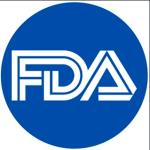By Robert Popovian, Pharm.D., MS, and Wayne Winegarden, Ph.D.
Policy & Ethics
It's too little and far too late, but the FDA appears to be acting to correct the ignorance and ineptitude that was shoved down the collective throats of America's pain patients in the form of the
The authority of public health officials, particularly concerning communicable disease, has long been predicated upon a decision made by the Supreme Court in 1905, Jacobson v. Massachusetts.
In the abstract, fact-checking seems like a noble practice.
It's good to be skeptical of scientists and the politicians who listen to them.
At the risk of offending, well, just about everyone, I simply cannot let this go by.
As I’ve written recently, a spate of devices enabling people with quadriplegia to move their extremities have been approved by the
What should social media companies do to stem the spread of “misinformation” on their platforms?
Cameron English’s article on declining trust in federal public health agencies noted that the gene












